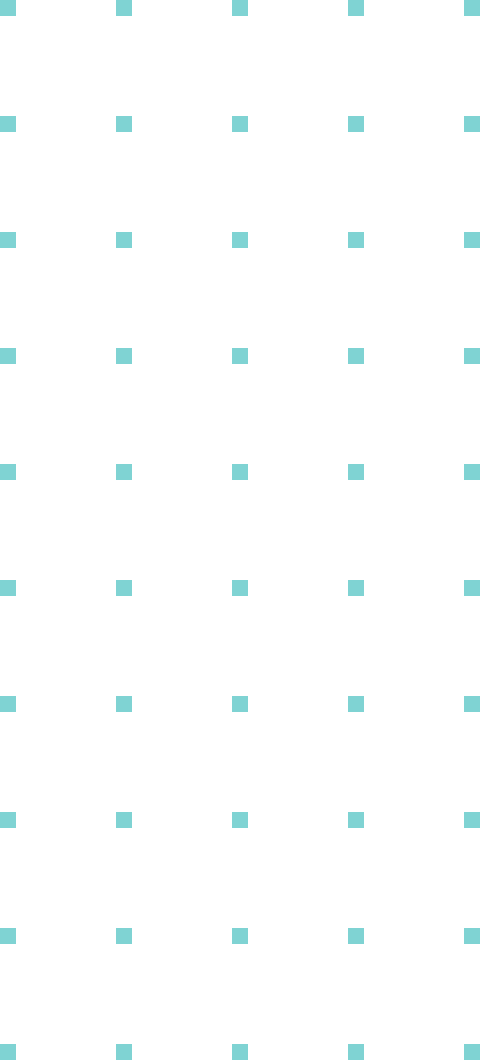
Fragile Earth 2023
Fragile Earth: AI for Climate Sustainability - from Wildfire Disaster Management to Public Health and Beyond

Since 2016, the Fragile Earth Workshop has brought together the research community to find and explore how data science can measure and progress climate and social issues, following the framework of the United Nations Sustainable Development Goals (SDGs).
The Fragile Earth Workshop was one of three workshops associated with the planned Earth Day event at KDD 2019 (organized by our OC members, Shashi Shekhar and James Hodson), provided keynotes and panels for Earth Day in 2020, and has been a recurring workshop at the annual KDD conference for the past seven years. We hope to continue this tradition in 2023.
Fragile Earth 2023: August 7, 2023
KDD Conference August 6-10th
Long Beach, CA
Contact:
Schedule
Paper Notification Date: June 23rd, 2023
 Wildfires and related disasters are increasing globally, making highly destructive megafires a part of our lives more frequently. This increasing prevalence of devastating megafires has necessitated innovation in wildland fire science and management. A common observation across these large events is that fire behavior is changing, making applied data-driven fire research more important and time critical.
Wildfires and related disasters are increasing globally, making highly destructive megafires a part of our lives more frequently. This increasing prevalence of devastating megafires has necessitated innovation in wildland fire science and management. A common observation across these large events is that fire behavior is changing, making applied data-driven fire research more important and time critical.
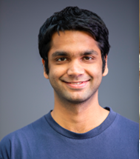 Most state-of-the-art approaches for weather and climate modeling are based on physics-informed numerical models of the atmosphere. These approaches aim to model the non-linear dynamics and complex interactions between multiple variables, which are challenging to approximate. Additionally, many such numerical models are computationally intensive, especially when modeling the atmospheric phenomenon at a fine-grained spatial and temporal resolution. Recent data-driven approaches based on machine learning instead aim to directly solve a downstream forecasting or projection task by learning a data-driven functional mapping using deep neural networks. However, these networks are trained using curated and homogeneous climate datasets for specific spatiotemporal tasks, and thus lack the generality of numerical models. In this talk, I will present ClimaX, a flexible and generalizable deep learning model for weather and climate science that can be trained using heterogeneous datasets spanning different variables, spatio-temporal coverage, and physical groundings. ClimaX extends the Transformer architecture with novel encoding and aggregation blocks that allow effective use of available compute while maintaining general utility. The pre-trained ClimaX can then be fine-tuned to address a breadth of climate and weather tasks, including those that involve atmospheric variables and spatio-temporal scales unseen during pretraining. Compared to existing data-driven baselines, we show that this generality in ClimaX results in superior performance on benchmarks for weather forecasting and climate projections, even when pretrained at lower resolutions and compute budgets. Towards the end of the talk, I will present ClimateLearn, our open-sourced library to standardize machine learning for climate science.
Bio: Aditya Grover is an assistant professor of computer science at UCLA. His goal is to develop efficient machine learning approaches that can interact and reason with limited supervision with a focus on deep generative models and their intersection with sequential decision making and causal inference. He is also an affiliate faculty at the UCLA Institute of the Environment and Sustainability, where he grounds his research in real-world applications in climate science. Aditya’s 45+ research works have been published at top venues including Nature, deployed in production at major technology companies, and covered in popular press venues. Amongst other honors, Aditya’s research has notably been recognized with three best paper awards, the ACM SIGKDD doctoral dissertation award, and the AI Researcher of the Year Award by Samsung. Aditya received his postdoctoral training at UC Berkeley, PhD from Stanford, and bachelors from IIT Delhi, all in computer science.
Most state-of-the-art approaches for weather and climate modeling are based on physics-informed numerical models of the atmosphere. These approaches aim to model the non-linear dynamics and complex interactions between multiple variables, which are challenging to approximate. Additionally, many such numerical models are computationally intensive, especially when modeling the atmospheric phenomenon at a fine-grained spatial and temporal resolution. Recent data-driven approaches based on machine learning instead aim to directly solve a downstream forecasting or projection task by learning a data-driven functional mapping using deep neural networks. However, these networks are trained using curated and homogeneous climate datasets for specific spatiotemporal tasks, and thus lack the generality of numerical models. In this talk, I will present ClimaX, a flexible and generalizable deep learning model for weather and climate science that can be trained using heterogeneous datasets spanning different variables, spatio-temporal coverage, and physical groundings. ClimaX extends the Transformer architecture with novel encoding and aggregation blocks that allow effective use of available compute while maintaining general utility. The pre-trained ClimaX can then be fine-tuned to address a breadth of climate and weather tasks, including those that involve atmospheric variables and spatio-temporal scales unseen during pretraining. Compared to existing data-driven baselines, we show that this generality in ClimaX results in superior performance on benchmarks for weather forecasting and climate projections, even when pretrained at lower resolutions and compute budgets. Towards the end of the talk, I will present ClimateLearn, our open-sourced library to standardize machine learning for climate science.
Bio: Aditya Grover is an assistant professor of computer science at UCLA. His goal is to develop efficient machine learning approaches that can interact and reason with limited supervision with a focus on deep generative models and their intersection with sequential decision making and causal inference. He is also an affiliate faculty at the UCLA Institute of the Environment and Sustainability, where he grounds his research in real-world applications in climate science. Aditya’s 45+ research works have been published at top venues including Nature, deployed in production at major technology companies, and covered in popular press venues. Amongst other honors, Aditya’s research has notably been recognized with three best paper awards, the ACM SIGKDD doctoral dissertation award, and the AI Researcher of the Year Award by Samsung. Aditya received his postdoctoral training at UC Berkeley, PhD from Stanford, and bachelors from IIT Delhi, all in computer science. In an era of increasingly complex natural disasters, Geographic Information Systems (GIS), Machine Learning (ML) and Artificial Intelligence (AI) are combining to revolutionize the way we approach disaster mitigation, prediction, and management. This presentation explores innovative techniques in integrating ML and AI within the wildland fire sector and beyond, creating real-time prediction models, GIS-integrated intelligent systems, and adaptive response mechanisms. The focus will be on demonstrating how these technological advancements have changed how we approach pre-, active-, and post-disaster environments and explore applications on the horizon. Esri’s commitment to cutting-edge integrations serves as a beacon for technology-driven solutions in disaster management, signaling a new era in natural disaster management.
Bio: Anthony Schultz is the Director of Wildland Fire Solutions at Esri. His background is focused on wildland fire management and operations. He has served in a variety of capacities, but most recently as the Fire Management Officer (FMO) for the State of Wyoming. During his tenure as a Fire Management Officer, he chaired the Western State Fire Managers and was a Rocky Mountain Coordinating Group member. He also served as an FMO with the State of North Dakota and as a wildland firefighter for several federal agencies to include the Bureau of Land Management and the National Park Service.
In an era of increasingly complex natural disasters, Geographic Information Systems (GIS), Machine Learning (ML) and Artificial Intelligence (AI) are combining to revolutionize the way we approach disaster mitigation, prediction, and management. This presentation explores innovative techniques in integrating ML and AI within the wildland fire sector and beyond, creating real-time prediction models, GIS-integrated intelligent systems, and adaptive response mechanisms. The focus will be on demonstrating how these technological advancements have changed how we approach pre-, active-, and post-disaster environments and explore applications on the horizon. Esri’s commitment to cutting-edge integrations serves as a beacon for technology-driven solutions in disaster management, signaling a new era in natural disaster management.
Bio: Anthony Schultz is the Director of Wildland Fire Solutions at Esri. His background is focused on wildland fire management and operations. He has served in a variety of capacities, but most recently as the Fire Management Officer (FMO) for the State of Wyoming. During his tenure as a Fire Management Officer, he chaired the Western State Fire Managers and was a Rocky Mountain Coordinating Group member. He also served as an FMO with the State of North Dakota and as a wildland firefighter for several federal agencies to include the Bureau of Land Management and the National Park Service. Janine A. Baijnath-Rodino (UCLA) Dr. Janine Baijnath-Rodino is the Director of Meteorology and Adjunct Assistant Professor in the Department of Atmospheric and Oceanic Sciences at UCLA. Her current research focuses on identifying surface-atmospheric hydrometeorological processes that drive wildland fire behaviour across multiple spatial and temporal scales.
Janine A. Baijnath-Rodino (UCLA) Dr. Janine Baijnath-Rodino is the Director of Meteorology and Adjunct Assistant Professor in the Department of Atmospheric and Oceanic Sciences at UCLA. Her current research focuses on identifying surface-atmospheric hydrometeorological processes that drive wildland fire behaviour across multiple spatial and temporal scales.
 Thomas Huang (NASA JPL) is a Group Supervisor at NASA JPL’s Instrument Software and Science Data Systems section and the Strategic Lead for Interactive Analytics. Thomas is the NASA Principal Investigator for Earth System Digital Twins and the System Architect for NASA’s Sea Level Change Portal. As an expert in large-scale, distributed intelligent data systems, Thomas led both planetary and Earth information system projects.
Thomas Huang (NASA JPL) is a Group Supervisor at NASA JPL’s Instrument Software and Science Data Systems section and the Strategic Lead for Interactive Analytics. Thomas is the NASA Principal Investigator for Earth System Digital Twins and the System Architect for NASA’s Sea Level Change Portal. As an expert in large-scale, distributed intelligent data systems, Thomas led both planetary and Earth information system projects.
 Tom Gulbransen (NSF) is Program Director, Office of Advanced Cyberinfrastructure, Computer and Information Science and Engineering where his concentration is on the nexus of cyberinfrastructure and workforce development. Tom focuses on the Advanced Cyberinfrastructure Coordination Ecosystem of Service & Support program (https://ACCESS-CI.org).
Tom Gulbransen (NSF) is Program Director, Office of Advanced Cyberinfrastructure, Computer and Information Science and Engineering where his concentration is on the nexus of cyberinfrastructure and workforce development. Tom focuses on the Advanced Cyberinfrastructure Coordination Ecosystem of Service & Support program (https://ACCESS-CI.org).
 Prof. İlkay Altıntaş (UCSD), a research scientist at the University of California San Diego, is the Chief Data Science Officer of the San Diego Supercomputer Center as well as a Founding Fellow of the Halıcıoğlu Data Science Institute. She is the Founding Director of the Workflows for Data Science (WorDS) Center of Excellence and the WIFIRE Lab.
Prof. İlkay Altıntaş (UCSD), a research scientist at the University of California San Diego, is the Chief Data Science Officer of the San Diego Supercomputer Center as well as a Founding Fellow of the Halıcıoğlu Data Science Institute. She is the Founding Director of the Workflows for Data Science (WorDS) Center of Excellence and the WIFIRE Lab.
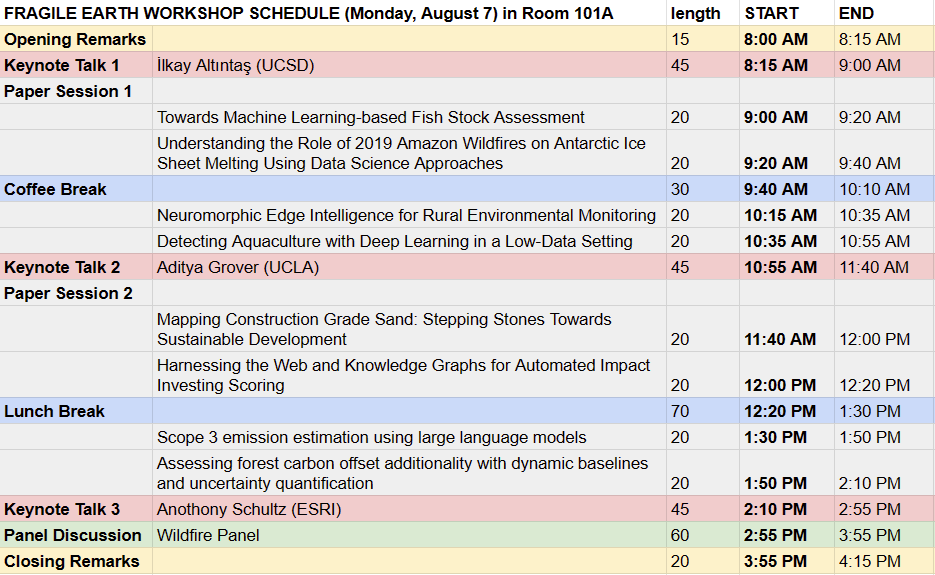
Accepted Papers
| Towards Machine Learning-based Fish Stock Assessment | Stefan Lüdtke, Maria E. Pierce |
| Mapping Construction Grade Sand: Stepping Stones Towards Sustainable Development | Ando Shah, Suraj R Nair |
| Harnessing the Web and Knowledge Graphs for Automated Impact Investing Scoring | Qingzhi Hu, Daniel Daza, Laurens Swinkels, Kristina Ūsaitė, Robbert-Jan ‘t Hoen, Paul Groth |
| Assessing forest carbon offset additionality with dynamic baselines and uncertainty quantification | Noah Golmant, Martha Morrissey, Carlos Edibaldo Silva, Felix Dorrek, Rachel C Engstrand |
| Scope 3 emission estimation using large language models | Ayush Jain, Manikandan Padmanaban, Jagabondhu Hazra, Shantanu Godbole, Kommy Weldemariam |
| Detecting Aquaculture with Deep Learning in a Low-Data Setting | Laura Greenstreet, Joshua Fan, Felipe Siqueira Pacheco, Yiwei Bai, Marta Eichemberger Ummus, Carolina Doria, Nathan Oliveira Barros, Bruce R Forsberg, Xiangtao Xu, Alexander Flecker, Carla P Gomes |
| Neuromorphic Edge Intelligence for Rural Environmental Monitoring | Atakan Aral |
| Understanding the Role of 2019 Amazon Wildfires on Antarctic Ice Sheet Melting Using Data Science Approaches | Sudip Chakraborty, Chhaya Kulkarni, Atefeh Jabeli, Akila Sampath, Gehan Boteju, Jianwu Wang, Vandana Janeja |
Call for Papers
Call for Papers
Background Info
Since 2016, the Fragile Earth Workshop has brought together the research community to find and explore how data science can measure and progress climate and social issues, following the framework of the United Nations Sustainable Development Goals (SDGs). Over the years, Fragile Earth workshop has focused on SDGs. This year we also focus on two other aspects, Environmental Justice and Planetary Health. Environmental Justice can be defined as the effort to “document and redress the disproportionate environmental burdens and benefits associated with social inequalities” (Chakraborty et. al 2016), as well as SDG 13: Climate Action. Planetary Health involves complex spatial–temporal interactions. Various methods in earth data analytics, including spatial–temporal statistics, spatial evolutionary algorithms, remote sensing image analysis, wireless geo-sensors, and location-based analytics, are emerging disciplines in understanding complex interactions in planetary health.
The application problems and agenda of interest include the Sustainable Development Goals, accelerating progress on the United Nations’ 2030 agenda, envisioning solutions for climate mitigation and adaptation, and measuring and diminishing the inequitable benefits and burdens across socioeconomic groups. In particular, the workshop has maintained a strong focus and community in the following areas: food security, sustainable agricultural practices and supply chains, ecosystem restoration, water management, sustainable energy, climate action and adaptation, socioeconomic equality, and resilience across a broad range of natural disasters such as wildfires, storms, and hurricanes. Fragile Earth Workshop invites ML and AI researchers, social and behavioral scientists, as well as natural scientists and engineers, to convene and discuss interdisciplinary solutions for progress towards
List of Topics
The Workshop will target both methodological and applied research agenda within these areas of investigation.
- The methodological topics of interest are relevant areas of KDD, including but not limited to:
- the integration of physics into data-driven modeling and the use of machine learning to enhance physical simulations
- model explainability, uncertainty quantification, privacy and fairness questions in environmental modeling
- integration of symbolic and neural machine learning for accurate and interpretable models
- causal learning in complex physical world as foundations for model trustworthiness
- ML applications at low-energy edge devices
- frameworks for helping the scientific and KDD communities to work together
- combining predictive and prescriptive tasks
- multi-agent systems for participatory modeling that integrate stakeholders into knowledge creation and decision processes
- geometric and topological deep learning for environmental modeling and assessment of environmental justice
- Domains of interest include but are not limited to:
- food security, sustainable agricultural practices and supply chains, ecosystem restoration, water management, sustainable energy, climate action and adaptation, socioeconomic equality, and disaster resilience
- wildfire analytics: detection, prediction, and discovery; wildfire smoke and environmental fairness
- innovations in data science and predictive modeling, applied to earth sciences
- investigations centering sustainability, including but not limited to environmental justice
- data-informed climate change and resource management policy discussions
- carbon removal technologies
- easily usable and publicly available data+model+frameworks (possibly challenge problems) based on satellite/drone data to monitor and predictively model the fragile earth
- natural catastrophes under a changing climate ranging from improved modeling to development of resilient infrastructures
- economic/quantitative characterization of climate change risk and associated incentives towards policy/decision making.
- Any other topics related to the themes of the workshop are welcome!
The papers from last year can be found here:
Papers
- GaLeNet: Multimodal Learning for Disaster Prediction, Management and Relief - Best Paper
- CIMF - Climate Impact Modelling Framework - Best Paper Runner Up
- Urban Forests for Carbon Sequestration and Heat Island
- Robustness of Urban Coastal Rail Network Under Projected Future Floods
- Multi-fidelity Hierarchical Neural Processes for Climate Modeling
- Feature Scaling and Attention Convolutions for Extreme Precipitation Prediction
- Evaluation of Surface Runoff Projections from Earth System Models in Major Basins of the World
- Estimation of Nearshore Water Depth Using Physics-Informed Deep Learning
- AI Enabled Decarbonization Framework
- A Multi-Perspective Content Analysis Platform for Sustainability Assessment
Organizers

Naoki Abe
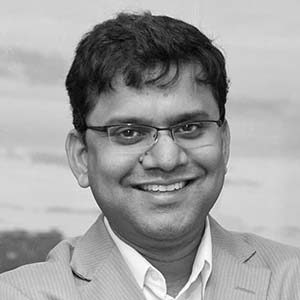
Auroop Ganguly
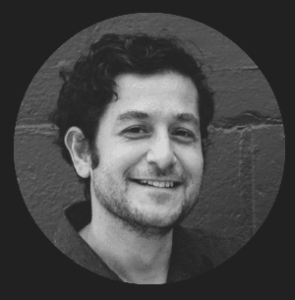
Emre Eftelioglu

Bistra Dilkina
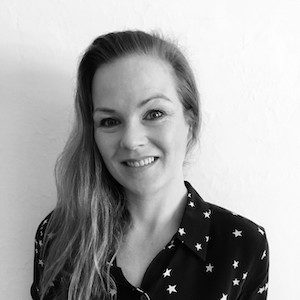
Kathleen Buckingham
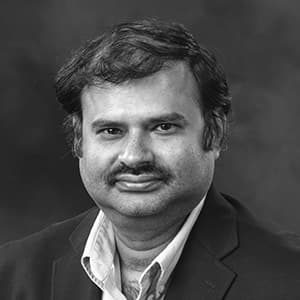
Ramakrishnan Kannan

James Hodson

Rose Yu

Yuzhou Chen

Jiafu Mao
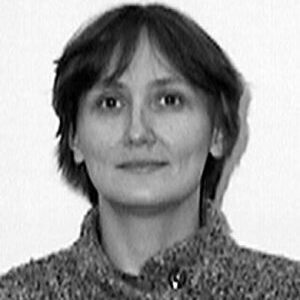
Yulia R. Gel

Huikyo Lee
Share this Page
Get Involved
Join our efforts to unlock AI’s potential towards serving humanity.
Support us
Become a Partner
Volunteer with us
Newsletter


